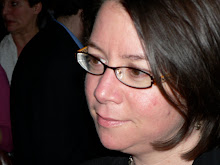Two of the questions I asked Jordan when I interviewed him about high school specifically asked him to compare his high school experience to his middle school experience. In making these comparisons, he was aware that the change is not only from middle school to high school, but also from a small school to a large one, from private to public, and from Billings in particular to Nathan Hale in particular (because each school has its own personality) – so it’s really not clear what comparison we’re making. But it was still interesting!
One of the questions was how Billings compares to Nathan Hale academically. His most interesting answer was about his experience of the teachers at the two places. At Billings, he said, the teachers were people you could relate to, almost friends. At Nathan Hale, he says, many of the teachers act like “teacher characters”: some are bland and old and strict, some are young and energetic and do crazy things, some have quirks, some tell oddball stories. Sometimes it’s so extreme that it’s impossible to imagine that they behave that way with their own friends or family. Jordan thinks that perhaps they put on this act to retain their authority, and that it might even be subconscious.
He remembers fondly that at Billings, they were rowdier with teachers once they knew them well. To Jordan, the rowdiness was a sign of how close they were to the teacher: they would razz them and horse around because they felt like friends. They got to know the teachers very, very well at Billings, especially because of the trips; there’s no chance they would ever get to know any Nathan Hale teachers that well, even someone like a coach, because you just wouldn’t be seeing them at all hours in unscripted environments the way you do when you go camping together.
I asked Jordan if this affects his learning, and he does not think that it does. He thinks his learning depends more on the instructional format than the authenticity of the teacher: there are teachers he likes whose class is not good, and teachers he doesn’t like but the class is good. I see this point of view. At the same time, I think that in the broader sense of “learning,” it makes a difference for adolescents (and everyone) to have respected adults in their lives who are behaving authentically.
Saturday, February 23, 2019
Subscribe to:
Post Comments (Atom)

No comments:
Post a Comment